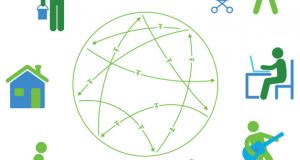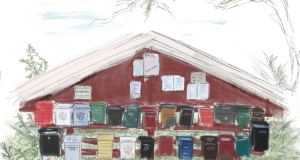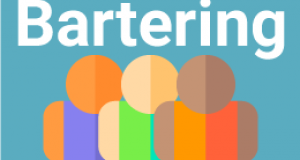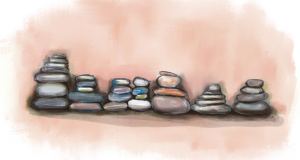
A moneyless society is a very utopian idea. Nevertheless human beings were living in a world without money at some point in the past. According to Wikipedia money emerged already around 12,000 BC. Though the first coins have been created quite a bit later. As many other concepts such as insurance, banknotes have first come up in China. The first banknotes were merchant receipts of deposit in the 7th century.
Is a moneyless society possible?
Currently we live in a much more complex society than anything that existed before. More and more people and relationships, it seems almost impossible to live without money. Still, that is what some people such as Heidemarie Schwermer, elf Pavlik and Mark Boyle are doing.
Most jobs these days are bullshit jobs:
Why did Keynes’ promised utopia – still being eagerly awaited in the ‘60s – never materialise? The standard line today is that he didn’t figure in the massive increase in consumerism. Given the choice between less hours and more toys and pleasures, we’ve collectively chosen the latter. This presents a nice morality tale, but even a moment’s reflection shows it can’t really be true. Yes, we have witnessed the creation of an endless variety of new jobs and industries since the ‘20s, but very few have anything to do with the production and distribution of sushi, iPhones, or fancy sneakers.
Stock brokers, banksters, lawyers, insurance brokers, marketeers, politicians, secretaries, office clerks, (most) programmers, (most) designers (working for advertising).
Do we really need people spending 9-5 in the office with 45 minute commutes in traffic jams or stuffed trains and buses? Aren't there better ways to spend time?
Abundance vs. Scarcity
Humanity creating virtual scarcity by prohibiting people from sharing that what costs nothing to share meanwhile pretending that material resources are endless and can be exploited infinitely.
Michel Bauwens, founder of the P2P foundation has concluded that contemporary society relies on the absurd ideas of materialistic excess and immaterialist scarcity. Humans treat the planet as infinite and exploits its resources, endangering the human species as a result. Moreover, through copyright and patents we build artificial walls around knowledge to impede sharing and collaboration. The peer-to-peer model (P2P), inspired by open source such as Wikipedia, attempts to reverse this logic as a way to establish a society in which the economy is subordinate to the general well-being..."
Moneyless society in the bible
Moneyless.org is not run by religious folks, but it's nice to add some perspective. And the bible is the most published book in the world. It also has some interesting things to say about money:
Keep your life free from love of money, and be content with what you have, for he has said, “I will never leave you nor forsake you.”
For the love of money is a root of all kinds of evils. It is through this craving that some have wandered away from the faith and pierced themselves with many pangs.
At openbible.info you can find more bible quotes related to money.






